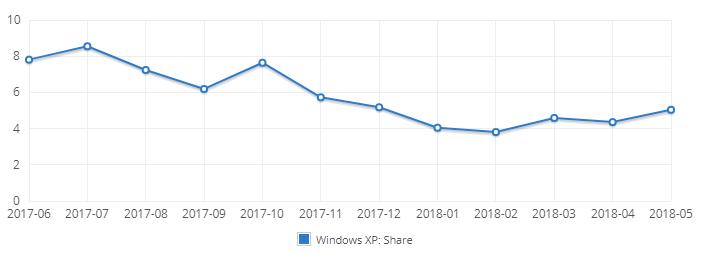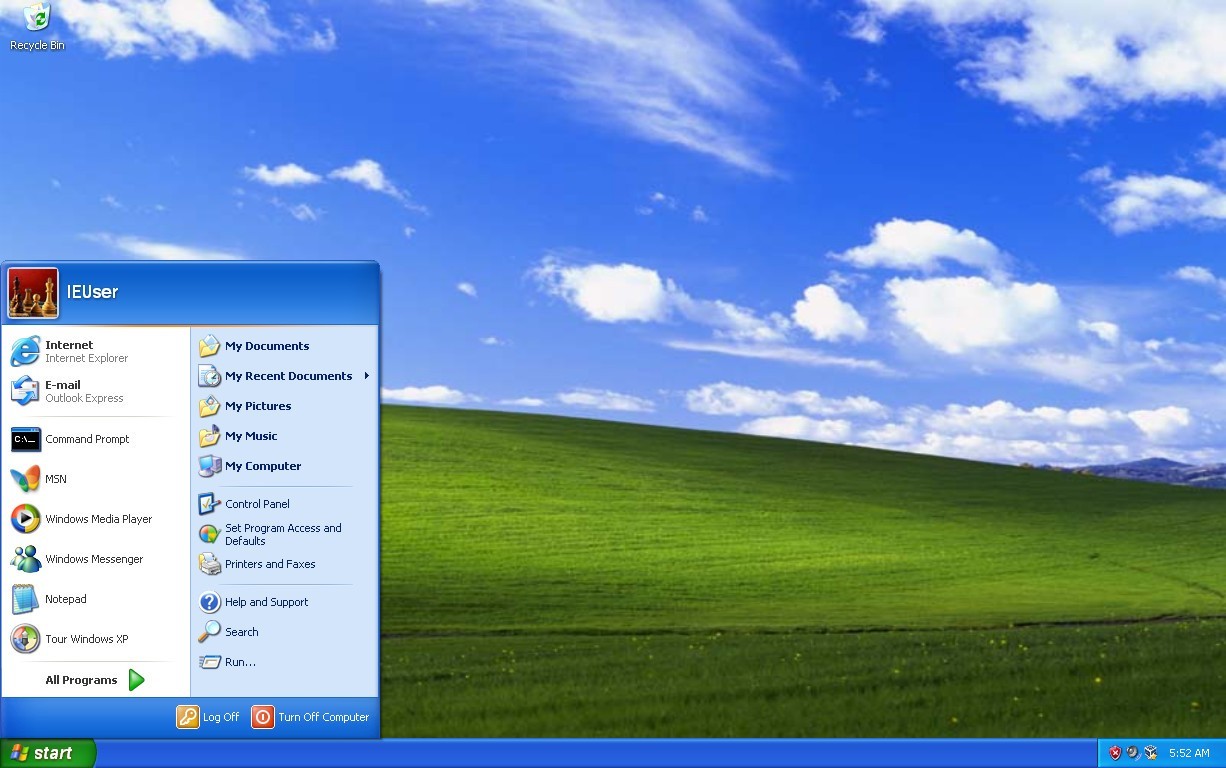As early as April 2014, Microsoft officially ended its support for the Windows XP operating system, and Microsoft hopes that users can immediately give up and quickly upgrade the computer to the latest version of the Windows operating system, including Windows 7 and Windows 8. Until this year, Microsoft is still “promoting” and pushing the Windows 10 operating system. For this reason, a one-year free upgrade promotion was launched when the system was released.
Although the number of Windows XP users has decreased during these years, the transition from XP migration to new systems is much slower than Microsoft’s expectations, and many users have delayed the upgrade for various reasons, including the associated cost of purchasing new hardware. And the complexity of the upgrade process, which makes the Windows XP operating system still very popular today.
According to NetMarketShare’s statistics at the beginning of this month, Windows XP’s market share in July last year was 8.55%, and then fell to 6.19% in September, but it recovered to 7.64% in a month. This situation continues, sometimes falling, and sometimes new market share growth. However, the overall trend is still declining. The Windows XP market share is currently 5.04%, which is the latest statistics in May 2018.

To be honest, the Windows XP system is really an antique now and everyone must abandon it. No matter how much you like it; there are dozens or even hundreds of reasons to like it. But you should give up it quickly.
Here are three things why you must have to upgrade and leave the Windows XP.

First of all, security. There is no doubt that security is currently the number one issue facing Windows XP computers. This operating system has not received any updates since Microsoft announced its end of support. Although there are exceptions, however, the thing which compels a user to leave the windows XP is the chances of getting hit by WannaCry vulnerability besides it also so a large number of unknown vulnerabilities have still not been patched, which exposed your entire computer to risk.
Considering that every version of Windows shares most of the code, as long as a security vulnerability is found in any version of Windows, it may affect other versions. This means that if a hacker finds a vulnerability in Windows 7 or Windows 8.1 or Windows 10, it is likely to affect Windows XP as well. The problem is that the top three Microsoft will still release patches, but there is no such treatment for XP, after all, no updates will be obtained.
Second the application support. When Microsoft gave up its official support for Windows XP, third-party application developers or developers naturally began to pay attention to such signals. In the past few years, more and more developers have turned their focus to Windows 7, 8.1 and 10, because most users have upgraded to the new system.
At the same time, Windows XP’s support for new technologies and new features is very limited, making many more advanced software features and security difficult to achieve, which more or less forced developers to give up the platform. In fact, this is a move that developers have to accept, not necessarily because they want to do it, but because they have to do so. Otherwise, these developers’ products will lack a lot of new features, appear obsolete and old, and can only support Windows XP.
Big companies like Google and Mozilla have chosen to bid farewell to the Windows XP system, and the browser versions for Windows XP are currently in maintenance mode, and support will soon end.
Finally, the new missing feature. The Windows XP operating system has always been praised for its features and functionality. In fact, many people like this operating system because it is stable enough and fully functional. But in the past decade, the Windows system has changed a lot, Windows 10 now has more advanced features, and these features are completely impossible to port back to Windows XP.
As Microsoft officially advertises, the Microsoft Edge browser, the native integrated Cortana assistant, the new operations center, the gradual change of the design language, the better support for the touch screen and stylus, etc., are all Windows 10 operations. The unique features of the system today.
Of course, for those who were once reluctant to give up Windows XP, the biggest problem may be the cost involved in the migration of the old system to the new system. Windows XP can still run on some very old hardware, but these old hardware can no longer support the Windows 10 operating system, few industrial software that only support the Windows XP environment and more. So, such type of so many causes are there those refrains someone to upgrade, but today or tomorrow, Windows XP users don’t have any choice left and need to purchase a new computer to upgrade.
Four years have elapsed since the end of Windows XP support. And the cost of upgrading should not be a big problem, because the hardware cost as compared to four years ago is much cheaper today, also buying a new computer that can support Windows 10 is far less expensive than you think.
In any case, no matter how long Windows XP can survive, everyone will give up sooner or later. Moreover, Microsoft is not so concerned about Windows XP, because the bigger problem for Microsoft is that Windows 7 is following the footsteps of Windows XP. After less than two years, Microsoft will announce that it may give up support for Windows 7. In order to convince users to upgrade the Windows 10 system, Microsoft will launch another promotion campaign.
In your opinion, is Windows XP supposed to give up now? What are the users who are still insisting on Windows XP?
You might also like to know about:
- How to Reinstall Windows 7 from USB or CD?
- How to get blue light filter for Windows 7, Windows 8 & Windows 10
- Why Is Linux Operating System So Popular?
- How to Create A System Repair Disc In Windows 7 and Windows 10
- Important tasks before selling your old computer or laptop
Source: Wei Feng
Related Posts
How to Install 7-Zip on Windows 11 or 10 with Single Command
Install Google Earth on Windows 11 or 10 Using a Single Command
How to install Gaming Services on Windows 11
How to Install Telnet Client on Windows 11 Using PowerShell
How to Install ASK CLI on Windows 11 or 10
How do you install FlutterFire CLI on Windows 11 or 10?